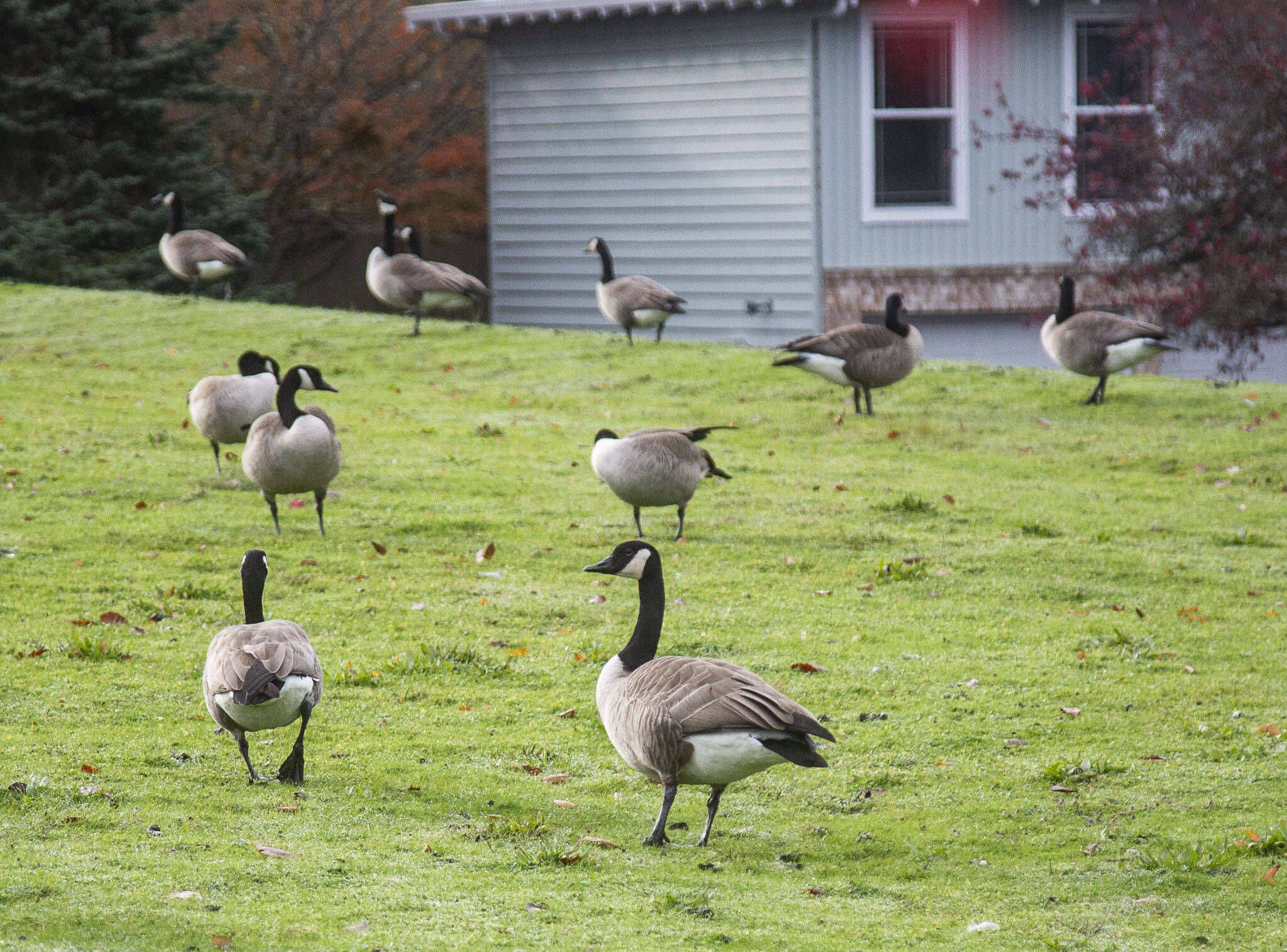MONROE — An estimated 70 to 80 cackling geese have died since early November from suspected bird flu at Lake Tye Park, state officials said.
On Nov. 4, the state Department of Fish and Wildlife began receiving reports of infected cackling geese at the Monroe park. The city posted signs at the park about the infections, but hadn’t issued any closures as of this week.
Bird flu, or avian influenza, occurs naturally among wild aquatic birds, including geese, ducks, swans and gulls. Outbreaks of this magnitude are common in the fall when birds are migrating and concentrating in large numbers, causing the virus to quickly spread through saliva, feces and contaminated surfaces.
Initial testing of one goose from the area came back positive for avian influenza, said Kurt Licence, district wildlife biologist for Fish and Wildlife. Licence said staff will conduct more tests only if additional species are affected. But so far, only geese have been sickened.
Avian influenza doesn’t spread as easily between birds and people, but Licence said people recreating at Lake Tye should still exercise caution.
People should avoid handling any sick or deceased birds, and pets should be kept on leashes, preventing them from scavenging any carcasses at the park. If someone notices a dead goose on their property and needs to discard it, Licence encouraged wearing gloves and double bagging the body before placing it in the trash.
Humans, too, can help reduce the transmission rate among birds.
On a recent visit, Licence saw park-goers feeding birds at Lake Tye, which is highly discouraged.
“The more that we can disperse these animals the better,” he said.
Licence said people can and should report any sick or dead birds they see through state Fish and Wildlife’s reporting tool.
Ta’Leah Van Sistine: 425-339-3460; taleah.vansistine@heraldnet.com; Twitter: @TaLeahRoseV.
Talk to us
> Give us your news tips.
> Send us a letter to the editor.
> More Herald contact information.

























